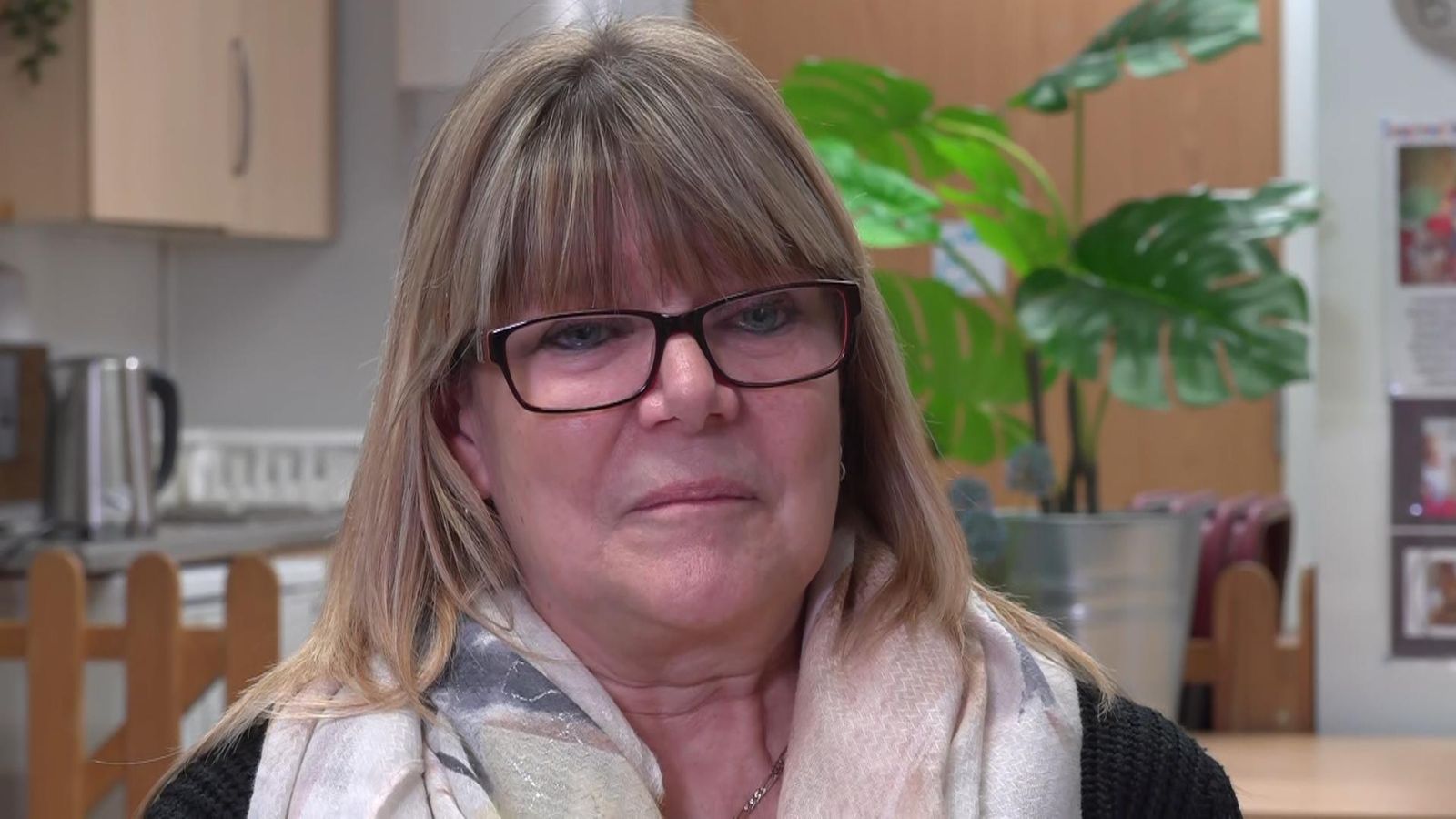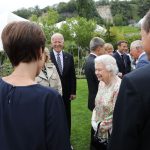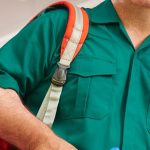A teacher whose mother died in a care home with just three COVID tests for 100 people during the pandemic has called on Matt Hancock to give his I’m A Celebrity earnings back and take his book off the shelves.
Kim Nottage’s mother, described as “the backbone of the family”, died in her care home in east London on 7 April 2020, at the height of the first lockdown.
There were only three COVID tests for 72 residents and all the staff – more than 100 people in total – and there was no PPE being worn, she said.
Ms Nottage told Sky News that Mr Hancock, who was health secretary at the time, has “blood on his hands” after he allegedly rejected testing advice for care homes, according to a Daily Telegraph report based on thousands of leaked WhatsApp messages.
The newspaper claims the then-chief medical officer Professor Sir Chris Whitty told Mr Hancock in April 2020 there should be testing for “all going into care homes and segregation while awaiting a result”.
But the leaked messages suggest Mr Hancock rejected that advice, telling an aide that the move “muddies the waters”, instead introducing mandatory testing just for those coming from hospitals.
Ms Nottage told Sky News: “He should give back every bit of money he got from I’m A Celebrity to start with. His book should be taken off the shelves
Matt Hancock’s explosive WhatsApp messages lay bare the political handling of the pandemic
COVID-19: What it was really like in care homes in the early stages of pandemic
COVID-19: China lab leak ‘most likely’ caused outbreak, FBI director says
“An apology is just not going to cut it anymore.
“It’s just unbelievable, an apology isn’t good enough, there’s blood on his hands.”
Last month, it was revealed Mr Hancock was paid £320,000 for taking part in the reality TV show I’m A Celebrity… Get Me Out of Here! last year, when he came third. He gave £10,000 – 3% – to two charities.
He has also published a book, Pandemic Diaries, co-written by the journalist who has released the WhatsApp messages.
Please use Chrome browser for a more accessible video player
Read more:
How were the WhatsApps leaked?
Five key exchanges
Explosive messages lay bare political handling of the pandemic
The Nottage family had last seen their 86-year-old mother, Maureen, on 10 March, a few days before the care home went into lockdown.
They said she had been “really well” and they would call up each day to check on her.
Maureen developed a cough and a temperature towards the end of March and the family asked if she needed to be tested or go into hospital but the GP said he only had three tests for everyone.
“We were constantly being told she was fine, we were never told she was near end of life,” Ms Nottage said.
“We would have gone in to see her but I got the phone call at about midday from the GP who said mum had passed away at 11am.”
Maureen’s family went to sit with her body – where she said nobody was wearing PPE – and asked if there would be a post-mortem as they did not know how she died.
But the staff then told Ms Nottage her mother had been given one of the three COVID tests and it had come back positive an hour and a half after she died.
Please use Chrome browser for a more accessible video player
It took Ms Nottage more than a year to receive the physical test result as she said “everybody denied having her test result”.
Mr Hancock is considering legal action against the Telegraph as his spokesman said claims he rejected clinical advice on care home testing were “flat wrong” because he was told it was “not currently possible” to carry out the tests due to a lack of capacity.
A spokesman for Mr Hancock said: “It is outrageous that this distorted account of the pandemic is being pushed with partial leaks, spun to fit an anti-lockdown agenda, which would have cost hundreds of thousands of lives if followed. What the messages do show is a lot of people working hard to save lives.”
“These stolen messages have been doctored to create a false story that Matt rejected clinical advice on care home testing. This is flat wrong.”
The Telegraph’s associate editor, Camilla Tominey, told the BBC: “The suggestion that we’ve somehow adopted these messages is simply not true.”






















